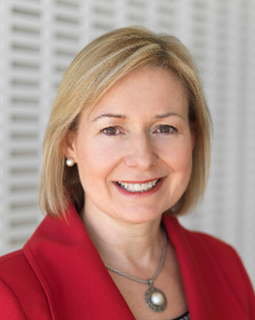Presenter

Rosalind W. Picard, Sc.D., FIEEE
Professor Rosalind W. Picard, Sc.D., FIEEE is founder and director of the Affective Computing Research Group at the Massachusetts Institute of Technology (MIT) Media Lab and founding faculty chair of MIT's Mind+Hand+Heart Initiative. She has co-founded Affectiva, Inc. providing emotion AI technology, and Empatica, Inc. creating sensors and analytics to improve health. Empatica created the first AI-based smart watch, Embrace, cleared by FDA in Neurology (for monitoring seizures).
Picard holds a bachelor's degree in electrical engineering with highest honors from the Georgia Institute of Technology, and master's and doctorate degrees, both in electrical engineering and computer science, from MIT. She started her career as a member of the technical staff at AT&T Bell Laboratories designing VLSI chips for digital signal processing and developing algorithms for image compression. In 1991 she joined the MIT Media Lab faculty. She became internationally known for constructing mathematical models for content-based retrieval of images and for pioneering methods of automated search and annotation in digital video, including the creation of the Photobook system. The year before she was up for tenure she published the book Affective Computing, which became instrumental in starting a new field by that name. Today that field has its own journal, The IEEE Transactions on Affective Computing, international conference ACII, and professional society, AAAC. Picard also served as a founding member of the IEEE Technical Committee on Wearable Information Systems in 1998, helping launch the field of wearable computing.
Picard has authored or co-authored over 300 scientific articles and chapters spanning computer vision, pattern recognition, machine learning, human-computer interaction, wearable sensors and affective computing. She is a recipient of several best paper prizes, including work on machine learning with multiple models (with Minka, 1998), a best theory paper prize for affect in human learning (with Kort and Reilly, 2001), a "best paper of the decade 2000-2009" by IEEE Intelligent Transporation Systems (with Healey, 2005) measuring driver stress, a best Face and Gesture paper prize for work with facial expressions (with McDuff, Kaliouby and Demirdjian, 2013), a best UBICOMP paper for an AI coach (with Hoque, Courgeon, Martin, and Mutlu, 2013), best paper at NIPS Workshop on Machine Learning for Health (with Jaques, Taylor, Nosakhare, and Sano, 2016) and best paper at IEEE RO-MAN for work on a Robotic Positive Psychology Coach (with Jeong, Alghowinem, Arias, Aymerich-Franch, Lapedriza, Park, and Breazeal, 2020).



